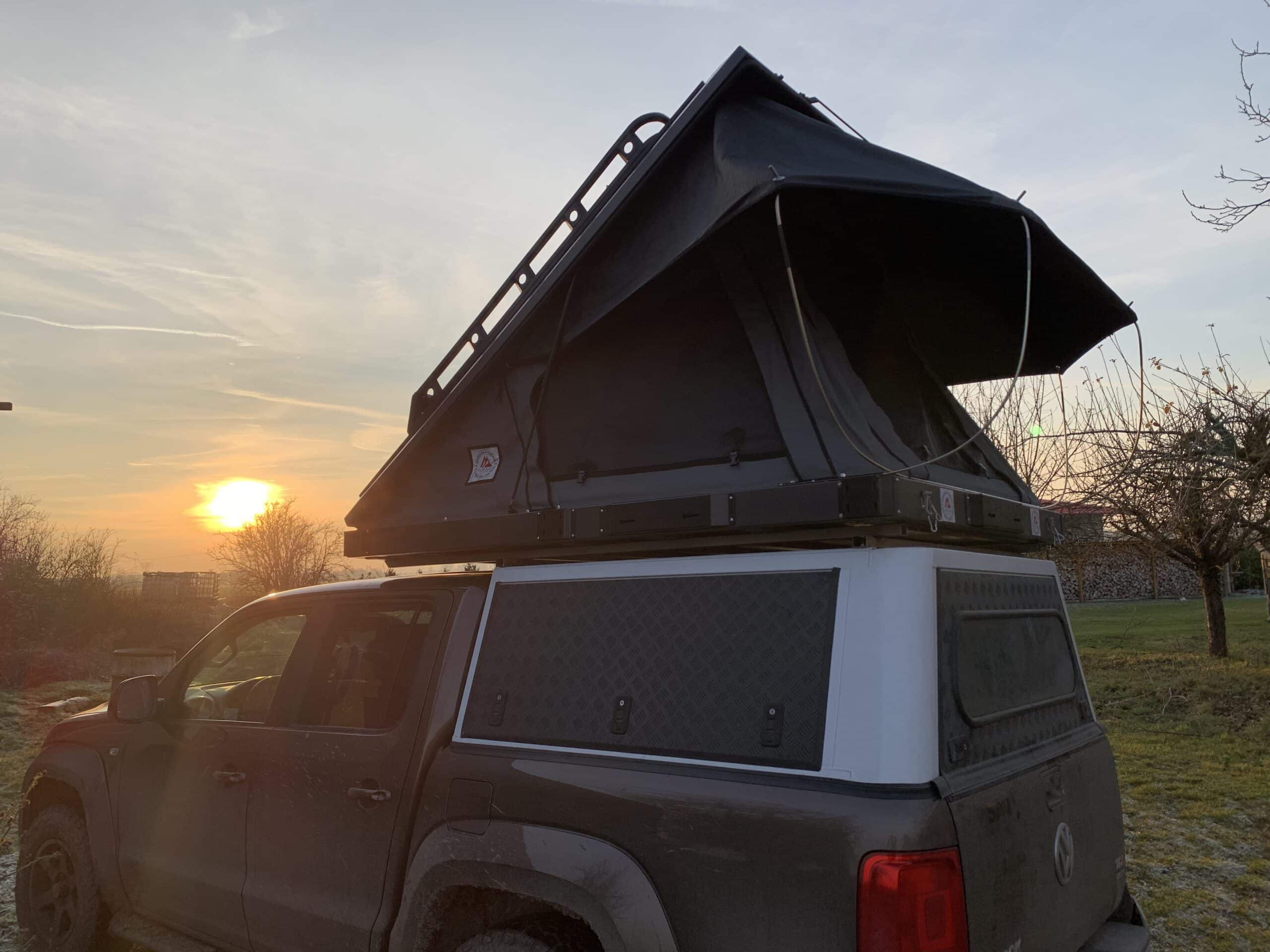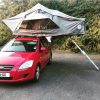Pros and Cons of Hard Shell Roof Tents
So you want a Roof Tent but not sure what type?
When it comes to camping, having a comfortable and convenient place to sleep is essential. That’s where roof top tents come in. These tents are mounted on top of a vehicle, providing a safe and elevated sleeping space.
While there are various types of roof top tents, one of the most popular options is the hard shell roof tent. In this article, we will discuss Pros and Cons of Hard Shell Roof Tents to help you decide if it’s the right choice for your camping needs.
Pros of Hard Shell Roof Tents
1. Easy Set-Up
One of the biggest advantages of hard shell roof tents is their easy set-up. Unlike traditional tents that require poles and stakes, hard shell tents simply need to be unfolded and pop open automatically, giving you access to your accommodation almost instantly. This makes them a great option for solo campers or those who want a hassle-free camping experience.
This ease of use and quick setup is particularly valuable when you are moving on every day, changing location day in and day out.
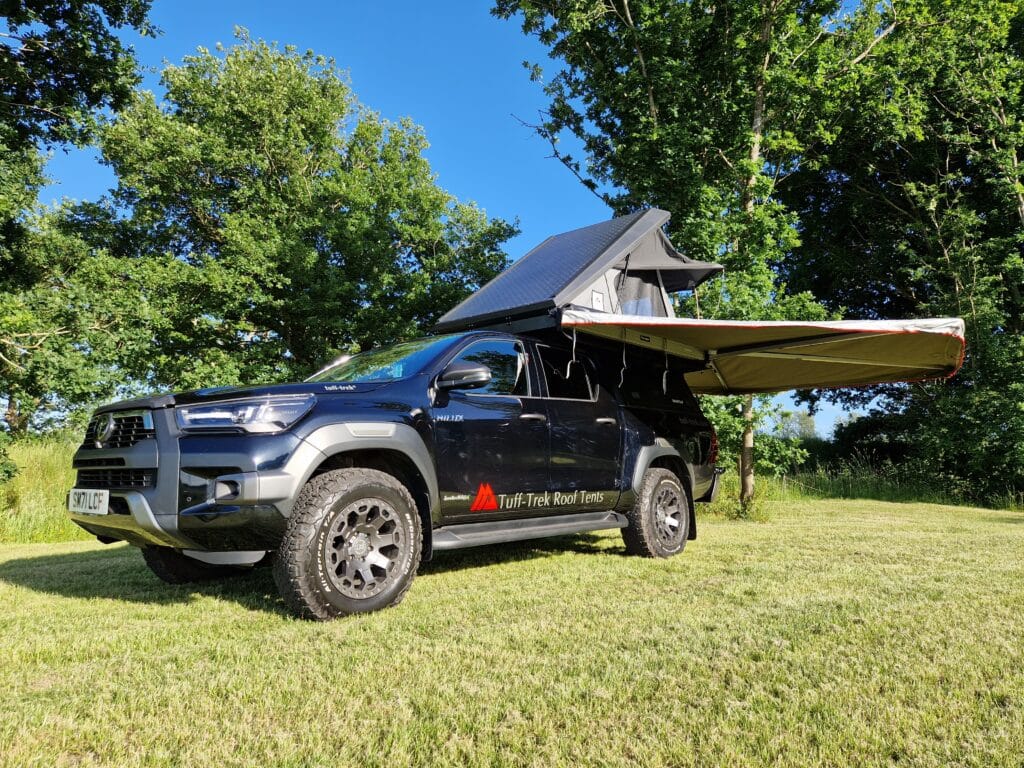
2. Durability
Hard shell roof tents are built to withstand harsh weather conditions. They are made with sturdy materials such as aluminum or fiberglass, making them resistant to wind, rain, and even snow. This durability also means that they have a longer lifespan compared to traditional tents. Becuase the shell is solid they also tend to be less noisy in windy conditions, with less flapping apparent in storms!
3. Comfort
Another major advantage of hard shell roof tents is their comfort. These tents typically come with a built-in mattress, and are more insulated in the roof than soft top tents, providing a comfortable sleeping environment. They also have ample space, allowing campers to move around and store their belongings without feeling cramped.
Image by JAMES BAROUD
4. Versatility
Hard shell roof tents are versatile and can be used on various types of vehicles, including SUVs, trucks, and even small cars. This makes them a great option for campers who have different types of vehicles or who like to switch up their camping style.
Cons of Hard Shell Roof Tents
1. Cost
One of the main drawbacks of hard shell roof tents is their cost. They are typically more expensive than traditional soft top roof tents, with prices ranging from £2400 to £4000. However, many campers argue that the convenience and durability of these tents make them worth the investment.
Like anything today, there are a raft of cheap Chinese made Aluminium and GRP (glass fibre) tents out there, often relabelled with different names. They tend to be of much lower quality than the established brands, meaning thinner fabrics, weaker fixings and fittings, thinner mattresses etc.
We definitely recommend going to look at various different options so that you can see what you are really paying for, and what quality you are getting!
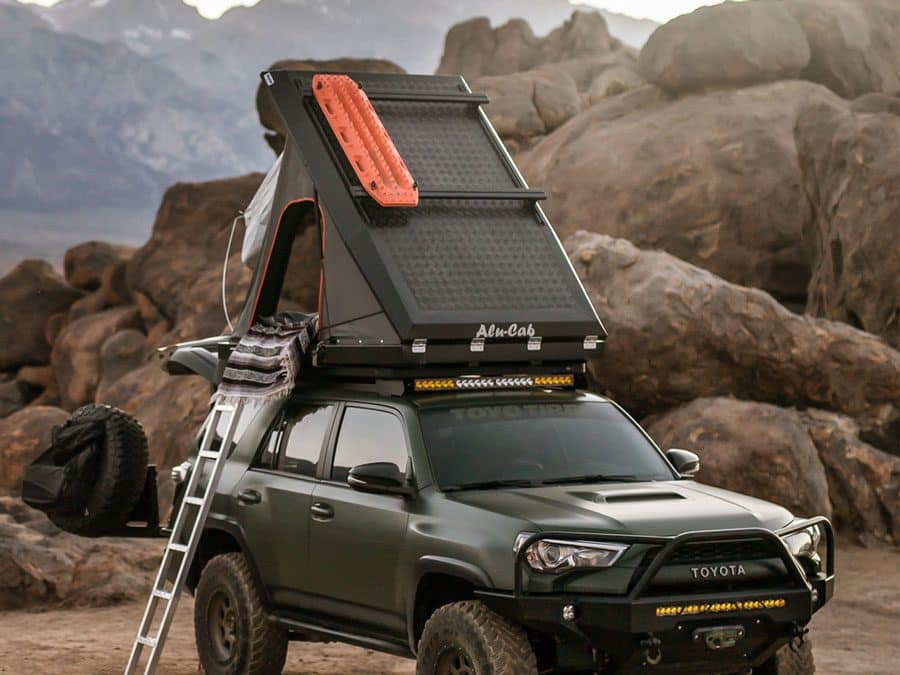
by ALU-CAB (https:/alu-cab_gen-3-3_expedition tent/)
2. Weight
Hard shell roof tents can be heavy, with most quality models sitting between 68kg to 85kg. Some models like the new ALU-CAB LT-50 ultra lightweight barely tips the scales at 48kg, but this is the exception, not the norm! The heavier weight is a result of the heavier quality fabrics and tough aluminum or GRP shells.
This heavier weight can be a problem for campers who have smaller vehicles or who struggle with lifting heavy objects. It’s important to consider the weight of the tent and the weight capacity of your vehicle before making a purchase.
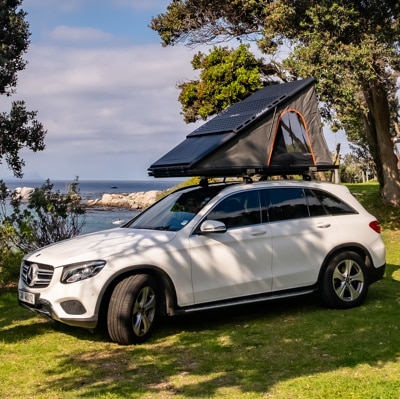
3. Limited Space
While hard shell roof tents offer more space compared to traditional tents, they are still limited in size. This means that they may not be suitable for larger groups or families. Additionally, the built-in mattress may not be comfortable for all campers, so it’s important to test it out before committing to a purchase.
Conclusion
In conclusion, hard shell roof tents have many advantages, including easy set-up, durability, comfort, and versatility. However, they also have some drawbacks, such as cost, weight, and limited space. You exchange space and a lower entry price with soft top roof tents for less space but a simple, quick setup!
Ultimately, the decision to purchase a hard shell roof tent will depend on your camping needs and preferences. Consider these pros and cons to determine if a hard shell roof tent is the best option for you.
Remember ALWAYS BUY THE BEST QUALITY YOU CAN! You can always ask our TUFF-TREK team to talk through the options to find the one that’s best for you!
Happy camping!
by Dara King

